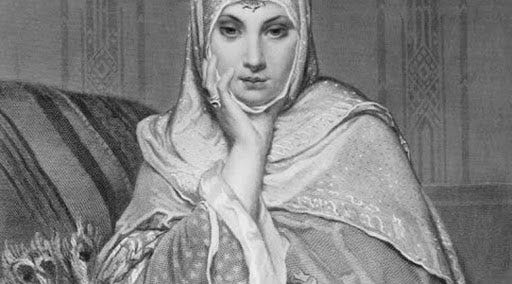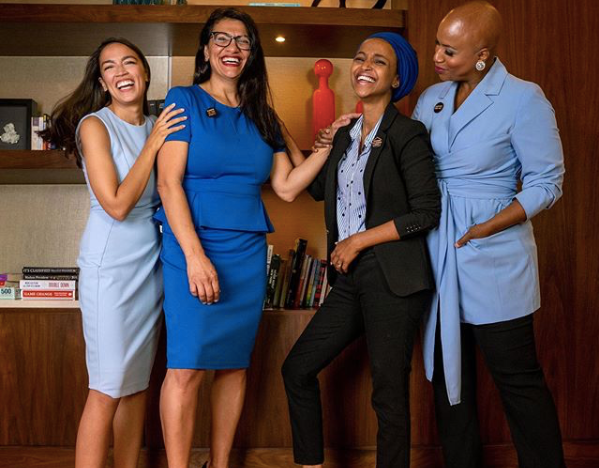Class Act: How to Ensure That Girls with Dreams Become Women with Opportunities
By: Iman Ali (MPAC Policy & Program Coordinator), Sarah Kawamleh (MPAC Fellow), Shaezmina Khan (MPAC Intern), Mariya Ali (MPAC Intern)

Every year, we celebrate Women’s History Month by highlighting the noteworthy contributions of women to contemporary and historical events throughout the month of March. This Women’s History Month, we honor trailblazing women, who have become champions of industry not only through their own grit and brilliance, but also because of the sacrifices made by brave women before them who recognized the importance of equity for women in society. Join us as we discuss further the legacy of resolute Muslim women, the impact their work continues to have on women today, the role Islam played in helping women seek knowledge, and the societal barriers that remain in achieving equitable educational advancement for women.
First in Class
Fatima al-Fihri, was a young Muslim woman living in Tunisia around 800 AD. In her adolescence, Fatima was forced to flee her home of Qarawiyyin, and move to Morocco.
Though she did not grow up wealthy, her father eventually accumulated enough money to be considered a successful merchant. He encouraged both Fatima and her sister to become educated in Islamic jurisprudence; Fiqh and the Hadith, which they both did. Their education became such an essential part of their identity that most of their life’s work revolved around helping others pursue Islamic Studies.
Soon after her marriage, Fatima al-Fihri experienced tremendous loss. Her new husband, father, and brother died in short succession of one another leaving Fatima and her sister with a sizeable inheritance. This inheritance allowed the al-Fihri sisters to secure their financial futures and make their dreams a reality.
Fatima al Fihri used her own funds to build the Mosque of al-Qarawiyyin in Fez, Morocco, which was named in honor of the numerous immigrants who came from her hometown of Qarawiyyin. It is reported that the Mosque took nearly 18 years to build, during which Fatima al Fihri fasted continuously. She later expanded the mosque to include the University of al-Qarawiyyin, the world’s oldest continually operating university system. This university served as a space to bolster the education of those interested in Islamic jurisprudence, and eventually housed professors who taught an array of subjects. Notable alumni of the University include Maimonides, a prolific Jewish philosopher and Ibn Khaldun a Muslim scholar, who has been described as the founder of the modern disciplines of historiography, sociology, economics, and demography. Both of these scholars did extensive work on the role and rights of women in their respective religions. Their insight on women, and their need to be involved in an equitable capacity in society was guided by their education at the University of al-Qarawiyyin. Both were profound in their approach to women and are now the namesakes of programs meant to bolster women in their respective fields. Check out the Maimonides Women in Science program and the Ibn Khaldun Fellowship at MIT for more information.
Needless to say, had it not been for Fatima al-Fihri, the work of many brilliant minds would have never reached fruition. It is her emphasis on education, and determination that helped to lay the ground for opportunity among all genders for a better and brighter future.
Degrees of Difference
While the work of Fatima al-Fihri, most certainly made a noble effort to achieve greater educational equity, the Quran laid the groundwork for such importance.
In Surah al-Mujadila, the Qur’an mentions the reward of acquiring knowledge:
“God will exalt those who believe among you, and those who have been granted knowledge to high ranks.” (Qur’an 58:11)
In Islam, seeking knowledge is obligatory upon every Muslim. Although the Qur’an describes men and women equally in their pursuit of knowledge for the sake of God, and though women’s religious authority was normalized early in Islamic history, there are significant gaps between the teachings of the Qur’an and the manner in which women are treated in education systems across the world today. Unfortunately, the un-Islamic patriarchal systems ruling many “Muslim” countries have infringed upon women’s right to an education, and thus, negatively impacted their education levels and economic security prospects.
The root of gender inequality in education is a reflection of gender inequality in other aspects of society and the economy. Multiple countries’ studies have shown that when school fees increase, there is a bigger increase in the dropout rate of girls compared to that of boys. Along with this, boys are more likely to have autonomy over their educational decisions, while girls tend to be held to societal norms that inhibit them from furthering their education. There is more of a push for men to pursue higher education than there is for women to do so. Today, one in three girls in low and middle income countries continues to be married before the age of 18.
In the US particularly, we find that women make up 56 percent of students on college campuses. However, we also find that women owe two-thirds of America’s student debt due to the gender wage gap and difficulty repaying student loans. Of the 1.5 trillion dollars in student loan debt, $929 billion is held by women. Furthermore, existing data shows that families with daughters are less likely to save for their children’s college education than families with boys. These data points highlight the substantial challenges that women of color face due to both gender and racial discrimination.
Representation in the Nation
Despite access to the aforementioned data, we continue to see patterns of behavior that perpetuate systems that have consistently bolstered men. However, following a surge of female elected officials winning their races, two of whom were the first Muslim women to be elected to U.S. Congress, media outlets began to call 2018 “The Year of the Woman”.

What we saw following an uptick of women in leadership was more representative legislation being brought to the floor, and issues like the Children’s Health Insurance Program, Equal Pay, and Paid Family Leave Act being discussed on a federal level for the first time.
All women fight exceptionally hard to achieve the equivalent of their male counterparts — and though the battle has been a generational tribulation, women are more ready than ever to ensure that they are not only getting their fair share, but that they are working to establish a more equitable society for all.
It is essential to acknowledge that women did not have access to the ballot box until 1920, following the passage of the 19th amendment. This is nearly 144 years after the founding of the United States. Yet despite these manufactured barriers, within the next century women were gracing all levels of leadership in the U.S. Government, all the way to Vice President of the United States — an indicator of what the next century will irrefutably hold.
Yet even with the strides in female leadership today, we can not forget the impactful legacy of those who came before them, like Fatima al-Fihri. The achievement of leadership will only come when women have equal access to places of growth and academic enrichment. This is exactly what Fatima al-Fihri dreamt of when developing her university, and it is a goal we must continue working towards.
The F̶u̶t̶u̶r̶e̶ (Now) is Female
Despite the abundant hardship caused by gender inequality, women have continuously shattered glass ceilings by fighting long and hard to be in spaces of power, which often starts with access to the classroom.
The work of visionaries like Fatima al-Fihri can be seen as directly correlated to the success of all Muslim women, regardless of age and nationality. Within the United States, American Muslim women have transformed their communities with their work. Though the venom of anti-Muslim sentiment in the United States is a particularly gendered crisis — where many visible American Muslim women bear the brunt of Islamophobic prejudice — Muslim woman have overcome incredible hardships to reach new heights. Elected representatives like Representative Ilhan Omar and Representative Rashida Tlaib have shown Muslim women that the higher echelons of American government are possibilities for people of an Islamic religious background; they are also disproportionately outspoken women in Congress, lauded for their courage and willingness to speak truth to power. Community organizers like Rana Abdelhamid, Amani Al-Khatahtbeh, and Mona Haydar have dedicated their lives to helping Muslim women find strength and empowerment within themselves, fighting for representation and amplifying marginalized voices.
Women — Muslim or non-Muslim, American or non-American — have a history of trailblazing.
And despite gender inequity being a universal tribulation, women have shattered the glass ceiling of multiple industries, and continue to do so. In recognition of the remarkable achievements of women like Fatima al-Fihri, we must also consider the great sacrifices they made to ignite social change in many patriarchal societies. The fight for education was never easy, and in the US, it took two centuries of struggle after the Revolutionary War for women to gain access to educational institutions. This Women’s History Month then, we reflect on the leading role that women have played, and continue to play, on the front lines of momentous global work. The journey has been long, but there are still miles to go — and we are ready to continue taking steps to ensure that girls with dreams become women with opportunities.